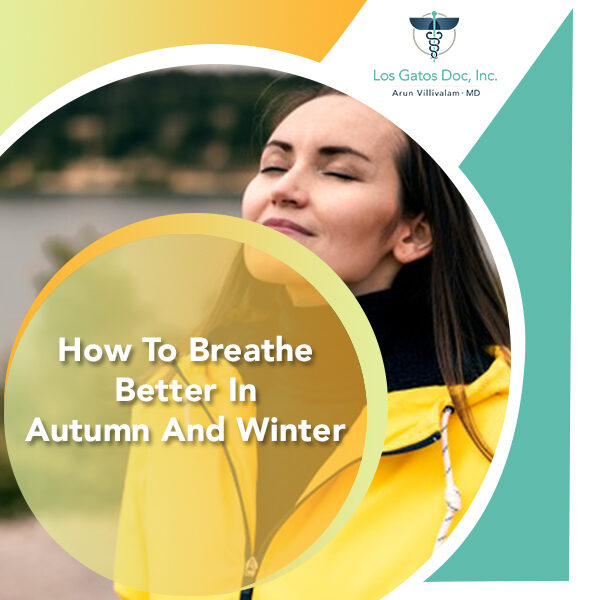Fall and winter are also the cold and flu season. So, those with respiratory illnesses have to be extra cautious during this time of the year.
In this article, we focus on the prevention tips to keep respiratory diseases at bay so you can enjoy the season even during this season.
What are respiratory illnesses?
Any disease or infection which affects the respiratory tract comprising the nose, throat, sinus, and lungs is a respiratory illness. The symptoms manifest as coughing, sneezing, runny nose, difficulty in breathing, or fever.
Some respiratory illnesses are infectious, like the flu. Some respiratory conditions are non-contagious, like asthma and COPD.
How to prevent respiratory illnesses during fall and winter?
Here are some basic actions that you can take to protect yourself from respiratory illnesses during this period.
Follow Safety And Hygiene Guidelines
The safety precautions that we take will help us keep respiratory illnesses at bay. Simple precautions include:
- Washing your hands with soap and water for at least 20 seconds
- Not touching your face with unwashed hands
- Staying at home when you’re sick
- Following respiratory hygiene, such as covering your mouth and nose while you cough and sneeze with your elbow or a disposable tissue
- Staying home if you are sick or self-quarantine
Get Vaccinated
Be on top of all your vaccinations. Take your annual flu shots and COVID booster shots if you haven’t yet taken them.
The flu vaccine should be taken annually. Everyone above six months of age should get the flu vaccine every flu season as per The Centers for Disease Control and Prevention guidelines.
There are many benefits to getting flu shots:
- It is the most effective way to minimize the risks of respiratory diseases during the fall and winter seasons.
- It reduces the need for flu-related hospitalization.
- It helps save lives from flu-associated deaths.
- It protects the individual, family, and community.
- It reduces the burden on the medical community and infrastructure from having to care for two respiratory illness-related complications.
- The flu vaccine can take up to two weeks to offer you protection against the virus. So, schedule an appointment for your family to get the flu shot at your local pharmacy or primary care clinic. The flu season is also an excellent time to schedule your annual wellness exams with your family practice physician.
Improve the Air Quality in Your Home
With more time spent indoors during the pandemic, ensure that the air quality inside your home is optimal. Vacuum, dust, and mop your floor surfaces. Clean your furniture and upholstery regularly. Replace the air filters in your home every 3 months. Wash your bed sheets, bedcovers, and pillow covers regularly. Take off your shoes and jacket before you enter the house. These efforts will help to improve air quality in your home.
Keep Allergies Under Control
Allergy symptoms can worsen for some during the fall and winter seasons.
The rise in pollen during fall, such as ragweed, can trigger symptoms in many with respiratory illnesses. Cold air in the fall and winter can make it hard to breathe. The cold and flu season and mold spores can aggravate respiratory illness symptoms and lead to respiratory infections, hay fever, and asthma. Common symptoms include wheezing, sneezing, runny nose, shortness of breath, coughing, sinus, dry throat, and chest tightness.
You should check the pollen, and mold counts in your area before venturing outside. Raking leaves during this time can stir up the pollen and aggravate your symptoms. Delegate this task or water the leaves before you rake. Wear a mask and goggles for extra protection during this period.
The best thing you can do is to schedule an appointment with Dr. Arun Villivalam, the best primary care physician in Los Gatos. Discuss your seasonal allergy for an appropriate plan and treatment.
Follow a Healthy Lifestyle
Keeping your health a top priority will protect your respiratory illnesses from worsening during falls. Being physically active, exercising regularly for 30 mins daily for 5 days a week, eating a nutritious diet, getting 7-9 hours of sleep every night, and avoiding unhealthy habits like smoking and drinking are some protective measures you can take to keep your lungs strong and healthy.
Final Thoughts
To enjoy the fall and winter seasons, follow the basics when it comes to your health. Small precautionary measures can indeed pay big health dividends.
Stay safe, and enjoy autumn and winter this year!
If you need consultation for respiratory illnesses like asthma or COPD during the pandemic, call us at 408-520-6040 or schedule a visit at visitlosgatosdoc.com.






